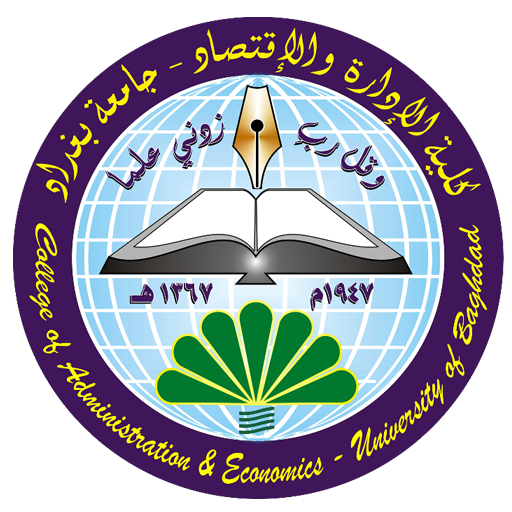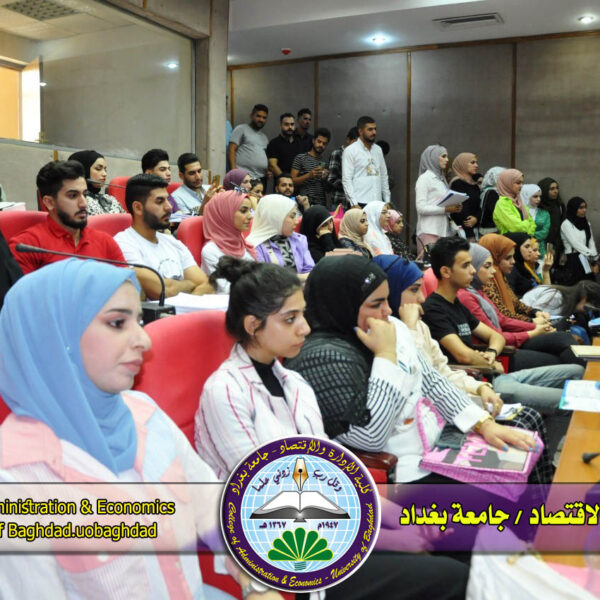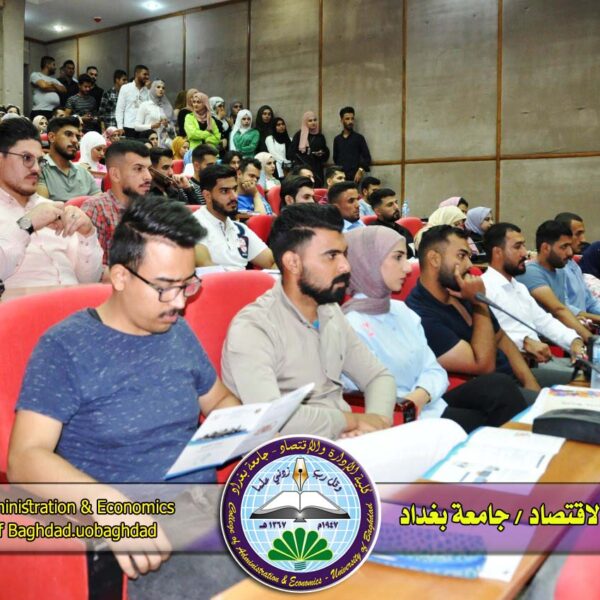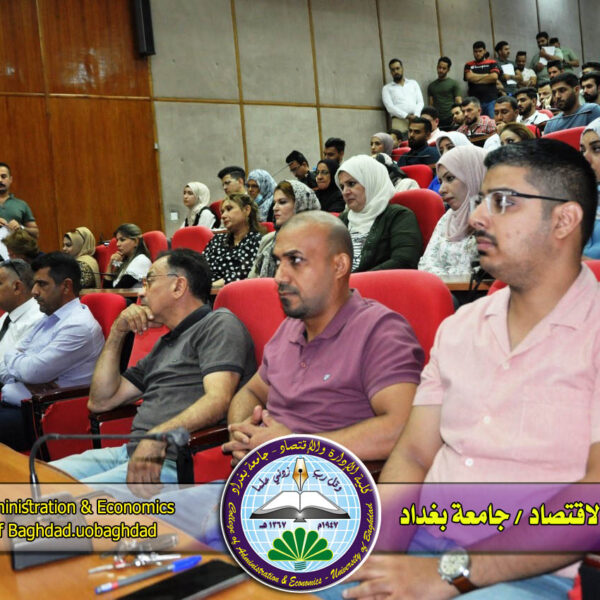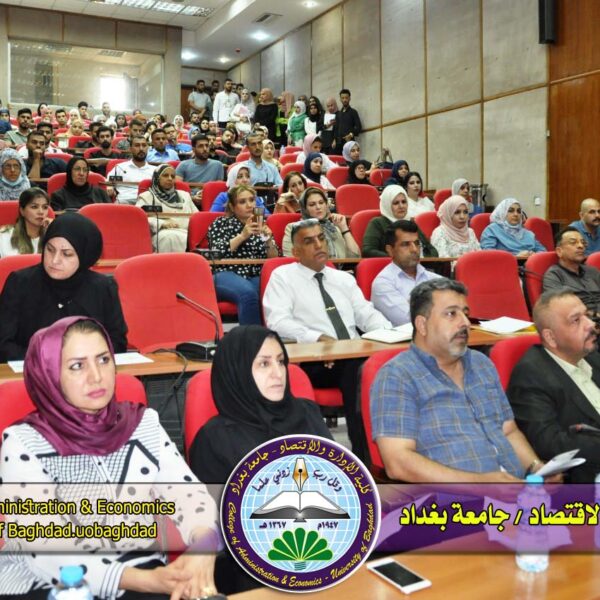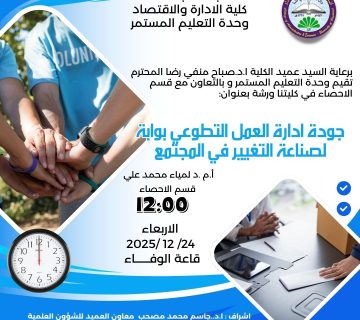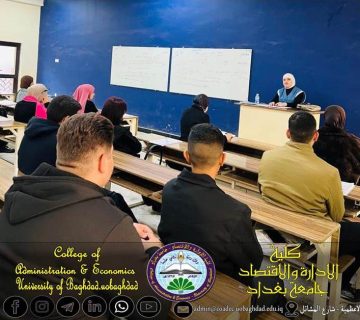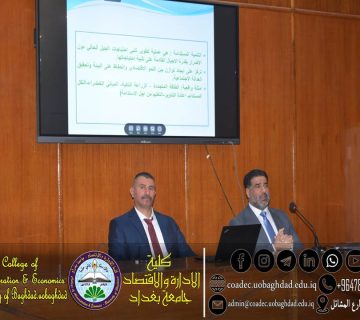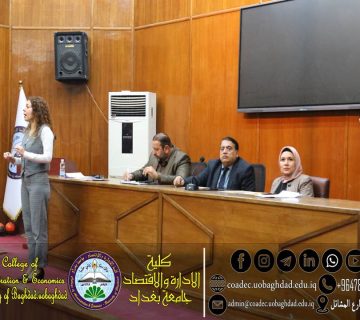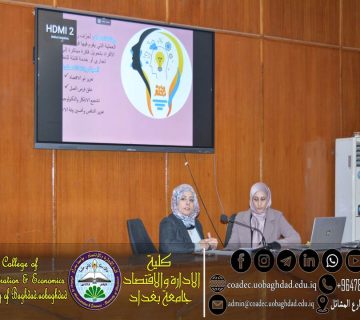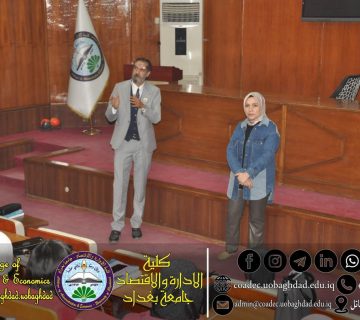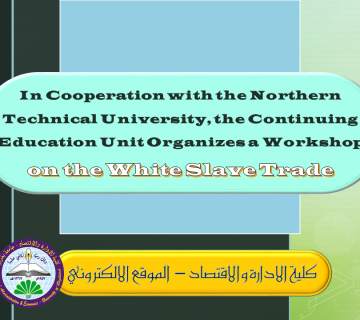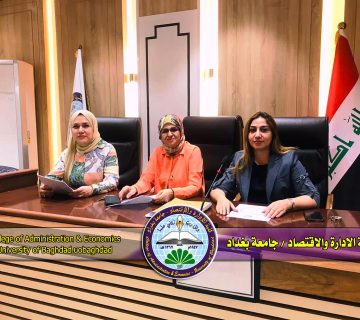The College of Administration and Economics, in cooperation with the Office of Money Laundering and Combating Terrorism in Iraq, organized a symposium entitled (Domestic and International Requirements for Combating Money Laundering and Terrorist Financing in Iraq), presented by Dr. Ali Muhammad Jawad, Advisor to the Anti-Money Laundering and Terrorist Financing Council in Iraq, and Professor Muhannad Thaer Abdel-Wahhab, Head of the Research Department And studies in the Anti-Money Laundering and Terrorist Financing Office in Iraq. The symposium was attended by Dr. Omar Al-Ashari, Assistant Dean of the College for Administrative Affairs, heads of scientific departments, professors and employees of the college, and a group of graduate and preliminary students.
The lecturer gave a definition of the meaning of money laundering, the procedures followed by the Iraqi state, and what is the role of the citizen in the money laundering process. Money laundering is defined as the process of converting illegal funds into legitimate funds by introducing them into the economic and commercial fields and using them in terrorist financing operations, as they result in economic, political and social effects.
The seminar reached the following points:
- The need to define the predicate offenses that result in illegal financial proceeds and the two crimes of money laundering and terrorist financing.
- Enhancing society’s awareness of the risks resulting from the crimes of money laundering and terrorist financing.
- The symposium also emphasized urging postgraduate students to submit theses and dissertations dealing with topics related to combating money laundering and terrorist financing, and to work on developing proposals to address the challenges identified by the concerned authorities in combating this type of crime.
- The need to report these crimes through the official correspondence of the office.

